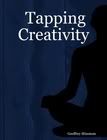 In this first installment of The Lonely Writer series, I would like to talk about desire. In particular, I would like to talk about the way desire impacts writers in terms of resolution.
In this first installment of The Lonely Writer series, I would like to talk about desire. In particular, I would like to talk about the way desire impacts writers in terms of resolution.
Desire is not something that is unique to writing or writers at all. In general, our main goal for taking action is to achieve a desired resolution. I would say that in most cases, the resolution desired prompts the action in the first place.
Resolution = having the bills paid. Action = going to work.
You get the idea.
The desire for resolution is magnified when we find ourselves in uncomfortable situations. We try to end arguments by leaving or yelling louder. When we get overcharged for an item, we go to customer service or quietly suck it up and let it gnaw at us inside a little.
As it applies to writing, many writers get anxious when they are sitting at the keyboard and the words aren't coming out. Sometimes the anxiety manifests when the words are coming out, but they're the wrong words. In both cases, frustration can ensue because the desired resolution is not being reached.
So what do we do? We go over to check in on our StumbleUpon friends. We start scanning our favorite blogs. We thumb through a magazine.
And none of this gets any writing done. In actuality, it doesn't get much of anything done. And in the end, the desire for resolution has led to no resolution at all. To make it all worse, the willingness to sit at the keyboard and write again can also be diminished.
It's an old adage that the successful writers are the ones who put their asses in seats, and keep them there. This also means approaching writing with less desire for a particular resolution. If you get 4,000 words, that's great. If you get none, that's okay, too. When you approach your writing time with less desire, you give yourself permission to simply exist in the moment for what it is, rather than trying too hard to make it something it is not.
When you can simply approach writing without the desire for a set resolution, you get closer to tapping creativity on a regular basis. Desire for resolution creates a barrier. When you write with less desire, you can get past that barrier. In the end, you are likely to end up achieving better results, and achieving them more frequently.
This doesn't happen overnight, as the desire for resolution has been a lifetime in the building. When you are aware of writing with less desire, however, you are well on your way.
Related Posts :
The Lonely Writer :: An Introduction
The Lonely Writer Part 2 :: Contentment
The Lonely Writer Part 3 :: Avoiding Unnecessary Activity
The Lonely Writer Part 4 :: Complete Discipline
The Lonely Writer Part 5 :: Not Wandering in the World of Desire
The Lonely Writer Part 6 :: Not Seeking Security from Discursive Thoughts
Thursday, September 6, 2007
The Lonely Writer Part 1 :: Less Desire
Subscribe to:
Post Comments (Atom)


3 comments:
With my blog and ongoing articles, this is one of the few times that I have started writing with an objective in mind. It is different than when I simply sit down to write whatever words flow out onto the paper. I don't mean to say that the words aren't mine. They are. When I write just to be writing, I don't direct the flow. It just happens. I am struggling with getting this concept on paper. I hope I am making sense.
With my present articles, because there is something specific that I want, no, need to say, I direct the flow of words more than when I am just writing for myself. These articles are so important to me that I am directing the flow more. I guess I am controlling it more. This is new for me. I don't usually disect what I write or what I am trying to say. Am I making sense with this?
This style of writing is more difficult for me. I generally don't pay attention to what direction I am going in when I start to write. I just let the words take me along for the ride. With these articles that I am writing, I have to pay more attention and stay more focused. Thanks for writing this series of articles.
You make perfect sense. And writing with an aim or direction is great. It's just so easy to get discouraged or bored when it's not working right, that we can go reaching for something else. I'm sure every writer has experienced this.
What I'm hoping to convey is that sometimes letting desire for resolution direct the writing can be dangerous when it's not panning out correctly. I tend to think of writing as just the first part of the writing process. I believe ideas are shaped better in the editing stage. So, keeping at the writing (or at least not leaving the keyboard) is productive to cultivate a channel for creativity. And if it doesn't sound write, wait until you've got it all out first, then go back during editing and shape it more toward the original aim.
Thanks for putting in such an in-depth comment. This series is sort of an exploration for me as well. Knowing that others find it helpful is great reassurance.
Best,
Geoff
This is so true. It helps to focus on the creation process itself, rather than the end result.
I write some of my "best" when I have no specific resolution in mind. Thanks for articulating this idea really well.
Post a Comment